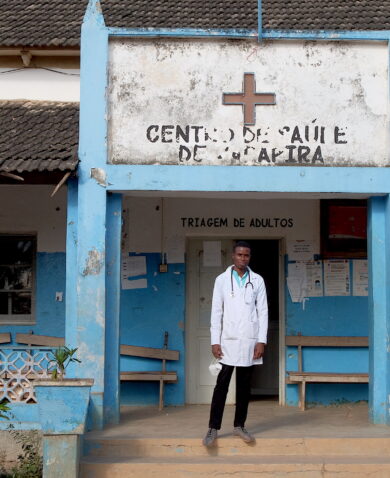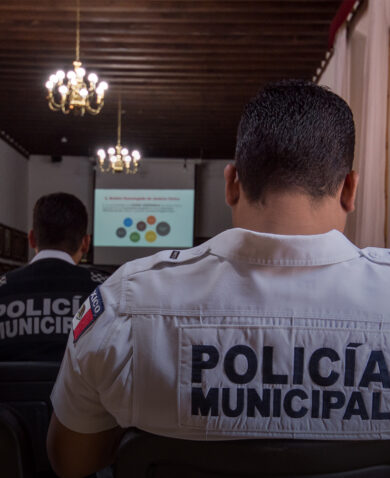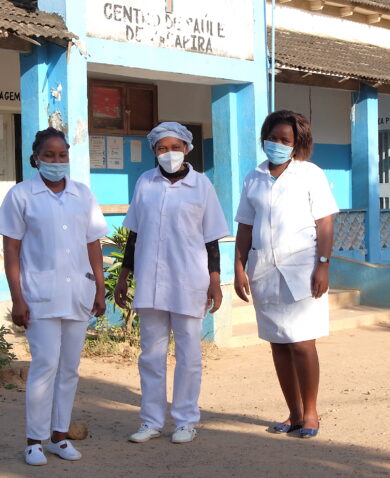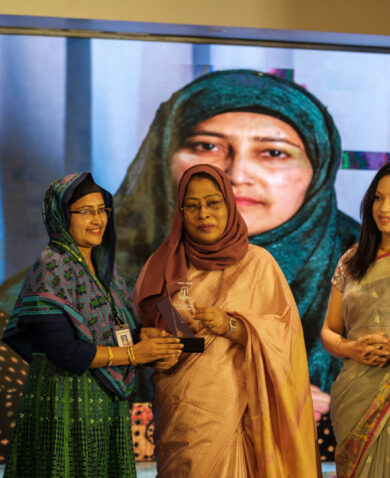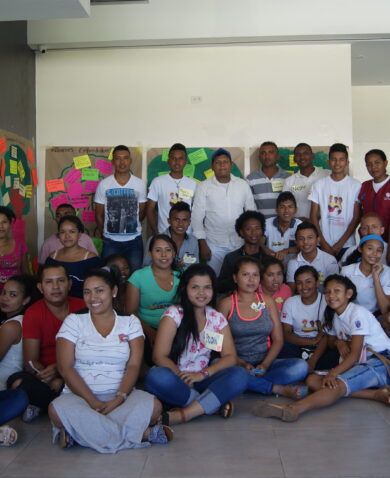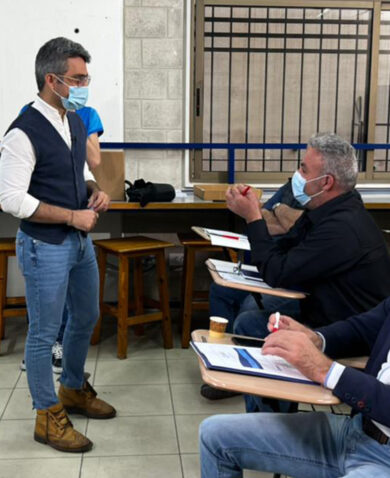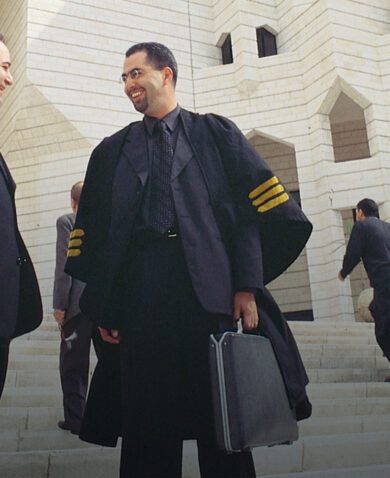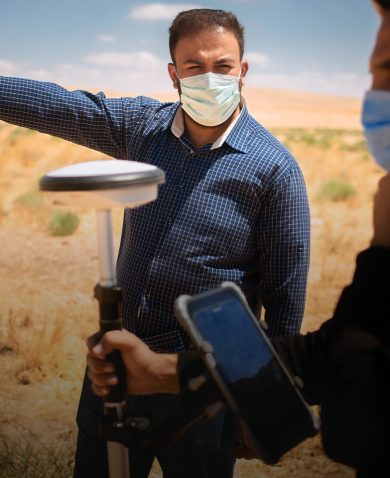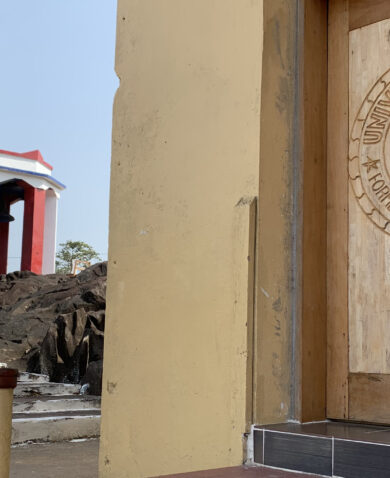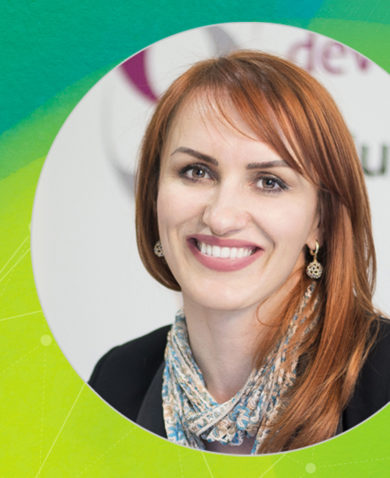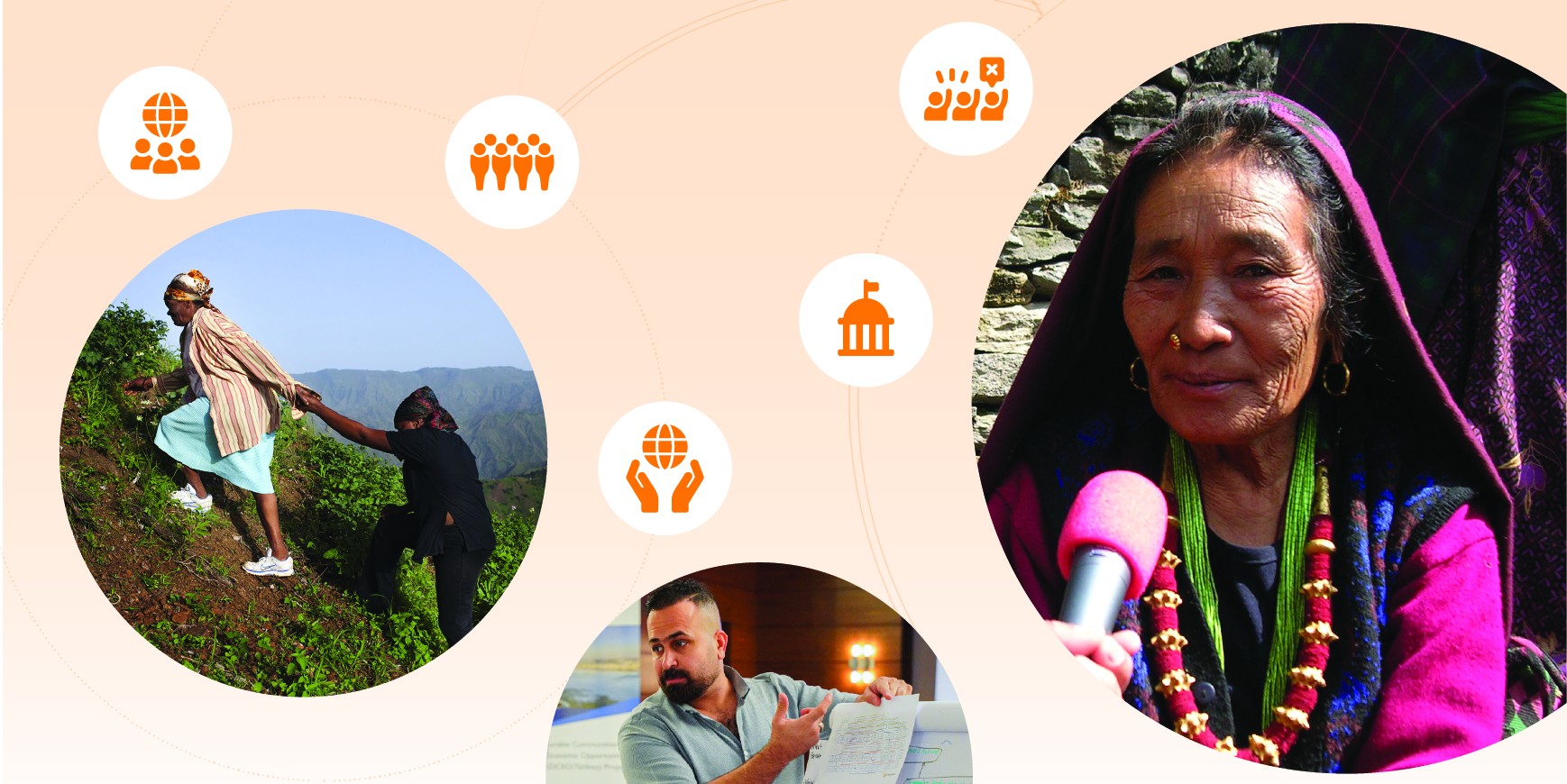
What Role Does Trust Play in Effective International Development Programmes?
September 22, 2022 | 5 Minute ReadEstablishing trust between people is a key ingredient in development programming. Yet, trust is seldom measured as its mercurial nature makes it challenging to define. Chemonics’ new whitepaper proffers a set of principles to help development, and in particular, governance specialists, develop a definition of trust that reflects their project's unique conditions and objectives to guide decision making and programming.
Trust flavors our life choices. It lays the foundations of our social and professional relationships. It colors the way we engage with organizations, services, and people. Globally, trust in public institutions appears to be decaying. The ‘fake news’ phenomenon has damaged perceptions of traditional media. The COVID-19 pandemic gave rise to widespread vaccine hesitancy, in some cases reducing citizens’ trust in their governments. Earlier this year, the Edelman Trust Barometer – an annual global survey of more than 36,000 respondents in 28 countries – found that roughly 50% of its respondents view government and media as divisive societal forces.
The presence or absence of trust is an issue international development practitioners must engage with, particularly in the governance sector. Trust lays the foundation for strong relationships between institutions and those requiring access to their services. Its absence prevents such relationships from forming. This is true in formal settings, like state-run healthcare, and informal settings, like community campaigning groups.
Despite its significance, trust is hard to define and even harder to measure. Trust is mercurial, assuming different forms in different contexts. Chemonics’ new whitepaper sets out the rationale for considering and using trust in development programming. The paper presents a set of principles for understanding trust, aiming to support development practitioners to develop definitions of trust for their projects. These definitions can act as a compass for programming, especially people-centered governance programmes focused on building relationships between government institutions, citizens, and civil society.
How Can Mapping Trust Inform Good Governance? A Case Study from the Mozambican Healthcare Sector
Governance projects teach us that levels of trust between the groups that comprise a community or society can significantly affect outcomes for citizens and governments alike. In Mozambique, the UK aid funded POTENCIAR program is looking to improve the relationship between different actors in the field of maternal healthcare. Some 80% of Mozambicans primarily use ‘traditional’ or informal medicine, partly due to a culture of illicit charges and distrust in state-run healthcare centers.
In the field of maternal health, this often means that women choose to use local traditional birth attendants. Historically, traditional birth attendants have been the main caregivers for Mozambican women during childbirth. They often carry the trust of communities that formal maternal health providers may not. Their role extends beyond the birthing process; they also often advise young women on matters like menstruation, pregnancy, and marriage. These informal social connections have proven to be a decisive factor in expectant Mozambican mothers’ choices about the birth of their children.
The issues plaguing government healthcare services are well known. “When a woman goes to deliver, they [healthcare providers] usually ask for money,” Rute told Chemonics in 2021, while pregnant with her second child. “If you don’t give money, you are kept waiting… it’s a health issue.”
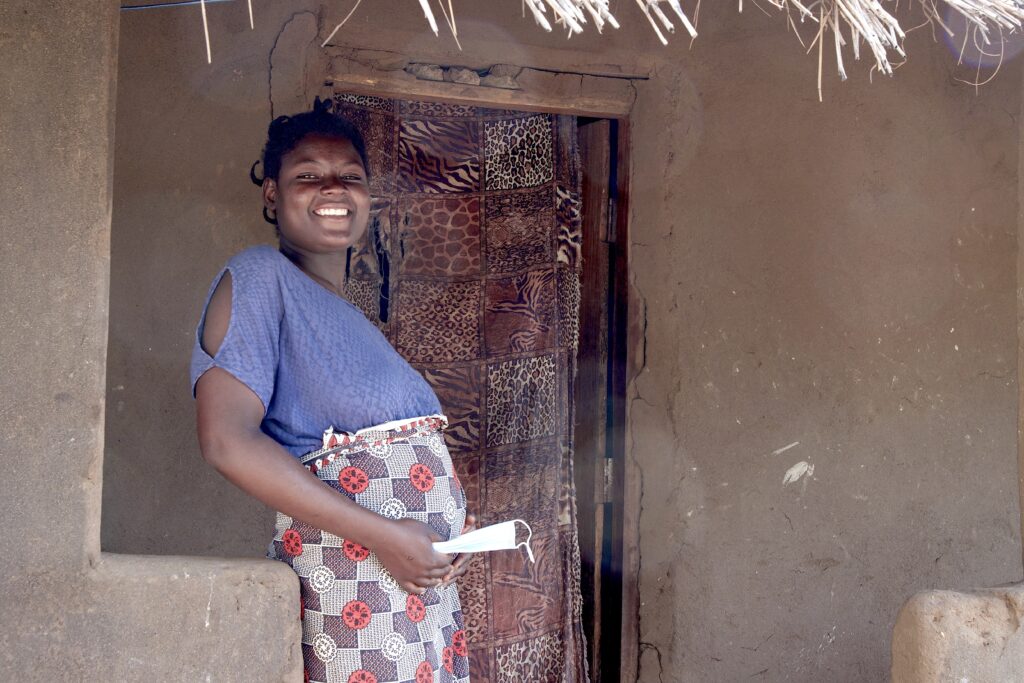
Caption: Rute, pregnant at the time this photo was taken, outside her home.
Rute’s experience is instructive when compared to the care provided by traditional birth attendants, like Zainabo. “That little girl there”, she says, pointing. “Her name is Yaya… her mother stayed three days in the hospital, and after that they sent her home… I helped her give birth.” The value of speaking to people like Rute and Zainabo cannot be understated. Their words are revealing. Mothers often trust reliable and consistent services with which they have a positive social and emotional connection.
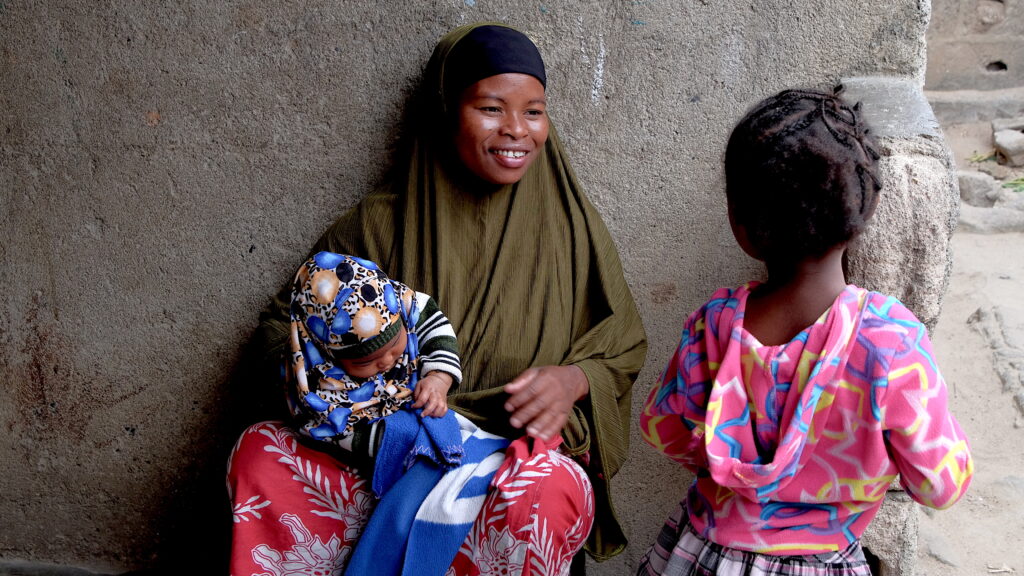
Caption: Zainabo (middle) regularly helps women in her community give birth.
The examination of the bonds between mothers and traditional birth attendants is part of a broader effort POTENCIAR is taking to map the network of individuals and organizations that comprise the maternal health ecosystem in Mozambique. The project aims to bring its stakeholders together to collaborate and, ultimately, build more effective public services for Mozambicans. By understanding what drives and hinders trust, POTENCIAR and its stakeholders can pinpoint pressing issues and design right-fit solutions to improve service provision and access.
Principles for Defining Trust
As we have seen from our Mozambique case study, complex social problems require complex analysis. Defining trust requires us not to gloss over the nuances that underpin individual and group decisionmaking. The POTENCIAR project demonstrates that in the Mozambican context, trust is not solely based on an institution’s strength or capacity; often the focus of governance programming. Instead, trust often builds when a service or institution meets its users’ practical needs and cultural expectations. Therefore, any attempt to understand trust must be bespoke and reflect the programme’s specific objectives and cultural context.
Practitioners should instead employ a set of principles to define how to create trust and use data appropriately. Importantly, this involves ensuring that the trust-building exercise is not disrupted by the potentially intrusive search to define it. The whitepaper outlines six principles, summarized below.
- Be theory-driven: Trust is complicated, nebulous, and hard to define. If you are trying to improve or develop it, you must first create a theoretical framework that will guide your work.
- Use your evidence: Test your theory by drawing on existing evidence and generating new evidence when needed.
- Resist the allure of the binary: ‘Yes’ or ‘no’ responses to surveys about trust are reductive. Instead, ask complex questions and provide definitions. Reducing things to simple questions might produce neat data but does not present an accurate picture.
- Throw a wide net: Be willing to blend various data collection approaches that reach a wide sample.
- More data is not better data: Your sample size and methods must be representative of and appropriate to the populations you want to understand. Not doing so may waste resources and produce unrepresentative data.
- Don’t fear the redesign: You’ll rarely get it right on the first try. If your pilot indicates something is not working, don’t be scared to adapt or wholly re-do your assessment.
Although there is no ‘one-size-fits-all’ approach to defining trust, these principles serve as guiding points for donors and implementers to determine how they might define and measure trust for their program. When following each principle, customization is key. It is imperative to stay context-specific at each stage of the journey.
Determining the role of trust in your programme
Developing a working and contextual definition of trust is a complex and time-intensive pursuit, but the benefits for governance programmes are clear. Developing a principles-focused, mixed-methods framework for defining trust ensures the nuance and specificity of each operating context is retained. Periodically evaluating governance programs using that definition will allow practitioners to carefully navigate and reinforce the relationships their programs need to succeed.
Read Chemonics’ whitepaper “Trust Issues: Why Trust Matters in International Development” here.
On 18 October 2022, Chemonics is hosting an event to discuss the findings of this blog and the above whitepaper.
Posts on the blog represent the views of the authors and do not necessarily represent the views of Chemonics.




